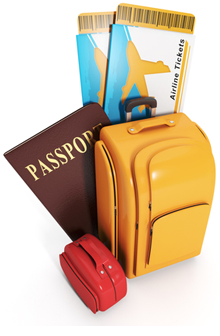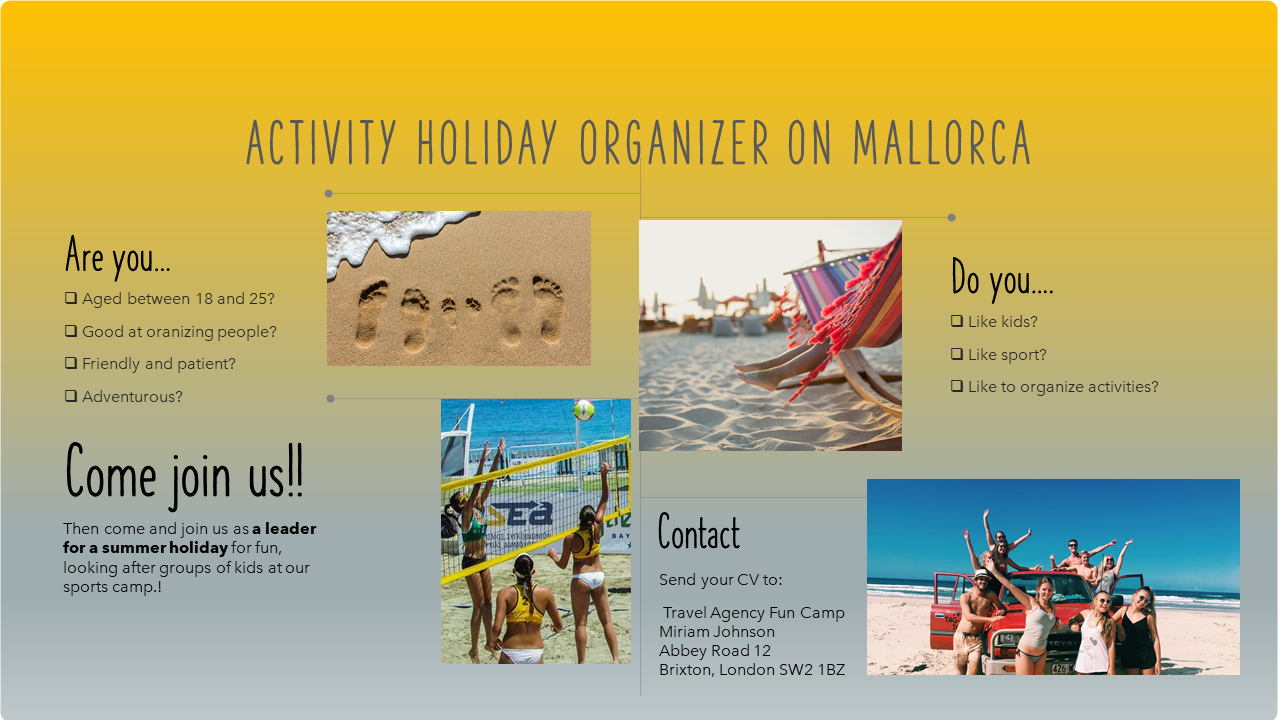Het arrangement A working holiday v456 is gemaakt met Wikiwijs van Kennisnet. Wikiwijs is hét onderwijsplatform waar je leermiddelen zoekt, maakt en deelt.
- Auteur
- Laatst gewijzigd
- 11-05-2025 22:41:47
- Licentie
-
Dit lesmateriaal is gepubliceerd onder de Creative Commons Naamsvermelding-GelijkDelen 4.0 Internationale licentie. Dit houdt in dat je onder de voorwaarde van naamsvermelding en publicatie onder dezelfde licentie vrij bent om:
- het werk te delen - te kopiëren, te verspreiden en door te geven via elk medium of bestandsformaat
- het werk te bewerken - te remixen, te veranderen en afgeleide werken te maken
- voor alle doeleinden, inclusief commerciële doeleinden.
Meer informatie over de CC Naamsvermelding-GelijkDelen 4.0 Internationale licentie.
Aanvullende informatie over dit lesmateriaal
Van dit lesmateriaal is de volgende aanvullende informatie beschikbaar:
- Toelichting
- Deze les valt onder de arrangeerbare leerlijn van de Stercollectie voor Engels voor vwo, leerjaar 4, 5 en 6. Dit is thema 'Tourism'. Het onderwerp van deze les is: A working holiday. Deze les gaat over werkvakanties. Er wordt gesproken over vacatures, curriculum vitae en sollicitaties die werk en vakantie combineren.
- Leerniveau
- VWO 6; VWO 4; VWO 5;
- Leerinhoud en doelen
- Engels;
- Eindgebruiker
- leerling/student
- Moeilijkheidsgraad
- gemiddeld
- Studiebelasting
- 3 uur 30 minuten
- Trefwoorden
- a working holiday, arrangeerbaar, curriculum vitae, engels, sollicitaties, stercollectie, v456, vacatures, werkvakanties
Gebruikte Wikiwijs Arrangementen
VO-content Engels. (2020).
A working holiday h45
VO-content Engels. (2017).
A working holiday v456

 We’ve looked at several aspects of the tourist industry and lots of issues.
We’ve looked at several aspects of the tourist industry and lots of issues.



 Jose
Jose Stephanie
Stephanie Marieke
Marieke The world at your feet: The life of a travel writer
The world at your feet: The life of a travel writer
 At the end of the text, Esrock writes:
At the end of the text, Esrock writes: 'Holiday'
'Holiday' You have decided to apply for the job advertised below.
You have decided to apply for the job advertised below. How to write a good covering letter
How to write a good covering letter

 Writing your CV (Curriculum Vitae)
Writing your CV (Curriculum Vitae)
